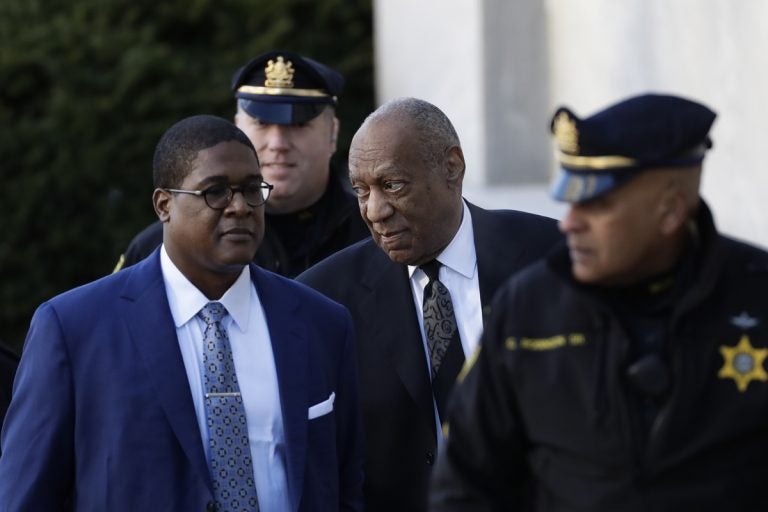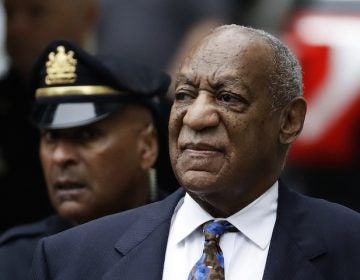Judge: 5 other accusers can testify at Bill Cosby’s retrial [updated]
Judge Steven O’Neill’s ruling Thursday is a victory for prosecutors looking to portray the 80-year-old comedian as one of Hollywood’s biggest serial predators.
Listen 1:33
Bill Cosby arrives for a pretrial hearing in his sexual assault case at the Montgomery County Courthouse, Tuesday, March 6, 2018, in Norristown, Pa. (AP Photo/Matt Slocum)
A Montgomery County judge ruled Thursday that five additional women who have accused Bill Cosby of sexual assault will be allowed to testify in his April 2 criminal retrial.
Last year, a jury couldn’t decide whether to convict the 80-year-old comedian of three counts of aggravated sexual assault, resulting in a mistrial. Judge Steven O’Neill’s decision to allow more women to take the stand and swear he drugged and assaulted them is expected to give the prosecution a boost the second time around.
“In my view, it’s likely a game-changer,” said former prosecutor Dennis McAndrews, who is not involved in the case. “The impact on a jury of having just one other accuser is far less dramatic than having five other accusers tell a similar story.”
Cosby stands accused of drugging and sexually assaulting Andrea Constand, whom he met through Temple University’s basketball program, in his Cheltenham home in 2004. In court documents, the entertainer has maintained the encounter was consensual.
In the first trial, O’Neill allowed the prosecution to call only Kelly Johnson, who claims Cosby sexually assaulted her in the 1990s, to try to show that the comedian had an insidious pattern of criminal behavior. Defense attorneys attacked the credibility of Constand and Johnson, a strategy that if repeated, could lead to a much lengthier retrial with five accusers.
Prosecutors sought to bring in 19 additional accusers to demonstrate that those criminal charges are only the latest in a five-decade pattern of Cosby drugging and attacking dozens of women. The two-page order from O’Neill instructed prosecutors to choose five “prior bad act” witnesses from a group of eight women who have made claims dating back to 1982.
Cosby’s lawyers fought the move. They argued prosecutors were looking to bolster a weak case with “ancient allegations” that would confuse and distract jurors in the #MeToo era. In a statement, Cosby spokesman Andrew Wyatt called the prosecutor’s desire to bring in other accusers “desperate” and “weak.”
At the heart of this argument is a fundamental concern over ensuring a fair trial for the defendant, while allowing the prosecution a chance to make a strong case in hard-to-prove circumstances, such as an alleged sexual assault.
“It’s very difficult to strike a fair balance,” said defense attorney Thomas Bergstrom, who has represented the Philadelphia Archdiocese in criminal pedophilia cases, but is not a part of Cosby’s team. He said witness testimony that implies a defendant is guilty of similar crimes, but is not itself the subject of the trial, can unfairly bias a jury.
“I agree with people that sometimes this [type of witness] is overused. I do not think this is one of those instances,” said Villanova law professor Anne Poulin, an expert in Pennsylvania’s laws of evidence. “This will give a representative sample of what the prosecution claims Cosby has been doing.”
Jury selection for his upcoming retrial begins at the end of this month.
CP 46 CR 0003932 2016 3 15 2018 COURT ORDER (Text)
—
The Associated Press contributed to this report.
WHYY is your source for fact-based, in-depth journalism and information. As a nonprofit organization, we rely on financial support from readers like you. Please give today.




